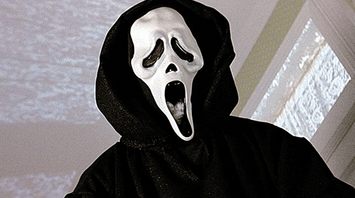Unoriginal Horror Movies That Became Iconic

Many cult-favorite horror films were greatly inspired by earlier movies, lacking originality. While this observation may seem negative, paying homage to past films is not inherently flawed. Derivative films can rise to cult status by expanding on established premises, crafting something fresh.
A number of noteworthy cult horror films pay tribute to classic movies. Actors, directors, and writers have confidently borrowed well-known tropes to create beloved B-movie favorites, satirical works, and comedic horror. It's increasingly difficult to craft a new slasher today without echoing elements from Halloween or The Texas Chain Saw Massacre. The rich history of horror enhances the enjoyment of these cult classics, making knowledge of older films a valuable asset.
Sleepaway Camp (1983)
Sleepaway Camp takes inspiration from previous slasher flicks, showing a lack of originality. Nonetheless, it birthed a franchise and secured its position as a cult favorite. The shocking twist reveals that Angela Baker, the serial killer, was born male, having endured mental struggles after being raised as female. This lends an uncomfortable lens to the movie when viewed today.
Despite its criticisms, Sleepaway Camp succeeds as a solid slasher film, unfolding with surprising turns. As a low-budget horror, it readily borrows elements from Friday the 13th. Its campy style and humorous undertones have contributed to its cult status. While the sequels may not have had the same draw, the blend of classic slasher scares mixed with a John Waters-esque weirdness gave this movie a unique flair.
Night Of The Creeps (1986)
Night of the Creeps displays poor special effects and carries a low-quality aesthetic. Yet, this affectionately crafted homage to horror delights viewers. As Fred Dekker's directorial debut, the movie cleverly fuses elements from alien invasions, slashers, and zombie films into a dynamic spoof, delivering authentic scares. It follows a college student and his friend as they unintentionally resurrect a corpse caught in extraterrestrial control.
This quirky film combines aspects of detective stories, horror, romance, sci-fi, and comedy, creating a genuinely derivative yet distinctive experience. The engagingly silly narrative makes it appealing to a wide audience. Unfortunately, Dekker’s directorial prowess did not excel post-release, as he directed only two more films: The Monster Squad and the uninspired sequel, Robocop 3.
Lake Placid (1999)
Lake Placid blends comedy and horror, influenced primarily by creature features, notably Jaws. It revolves around a terrifying giant crocodile that terrorizes the residents of Black Lake, presenting a struggle between scientists and law enforcement to defeat it. Betty White shines as a little old lady feeding the oversized croc, embodying one of her most memorable roles.
Though ostensibly revisiting every monster movie cliché, Lake Placid entertains without a hitch and has built a firm cult following. Infusing ironic humor about its influences underscores its charm. The film's outrageous success led to the creation of five low-budget, made-for-TV sequels.
Friday The 13th (1980)
Friday the 13th built on the success of John Carpenter’s Halloween, yielding a new slasher hallmark and beginning a lucrative franchise. This film amplifies familiar horror conventions to their peak extremes, featuring a group of teenagers unexpectedly killed at a reopened summer camp. Initially an independent production, it quickly became mainstream after securing a prominent distribution deal.
Facing a modest budget of $550,000, it accrued nearly $60 million in revenue. Friday the 13th fulfills a significant role in illustrating the fracture of the American family, paralleling horror classics like The Texas Chain Saw Massacre. Recognized as a fundamental slasher film, it proudly maintains a dedicated cult following that supports its sequels, crossovers, and reboots.
Scream (1996)
With elements of satire interwoven with horror, Scream emerged as a rare mainstream success. It boasts critical acclaim alongside a loyal cult audience. Directed by Wes Craven, known for classics like A Nightmare on Elm Street, the film delivers thrilling entertainment while cleverly referencing the genre's traditions. It also serves as a metacommentary on horror narratives.
Though not original, Scream echoes the premise of a masked killer, similar to those found in earlier films like Halloween and Friday the 13th. However, by addressing these familiar elements, the film remarks on the conventions of the horror genre, securing its cult status. Scream became a successful mix of campy charm and blockbuster appeal without reinvention.
Earlier, SSP told about the best shows on Netflix to stream now.



















